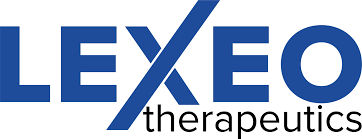Lexeo Therapeutics

🇺🇸United States
- Country
- 🇺🇸United States
- Ownership
- Public
- Established
- 2018-01-01
- Employees
- 58
- Market Cap
- $365.3M
- Website
- http://www.lexeotx.com
- Introduction
Lexeo Therapeutics, Inc. is a clinical stage genetic medicine company, which engages in the development of therapies for hereditary and acquired diseases. The firm focuses on the medication of genetically defined cardiovascular diseases and sub-group of Alzheimer’s disease. It offers LX2006 for the treatment of patients with Friedreich's ataxia, cardiomyopathy, and LX1001 for APOE4 homozygous patients with Alzheimer's disease. The company was founded by Ronald G. Crystal in February 2017 and is headquartered in New York, NY.
How decentralisation can fill the gaps in Alzheimer's research
Emerging Alzheimer’s therapies like Eli Lilly’s Kisunla and Eisai/Biogen’s Leqembi face regulatory and access challenges, highlighting the need for balancing clinical rigor with patient convenience. Decentralised clinical trials (DCTs) in Alzheimer’s have declined, with only 7.09% of trials conducted as DCTs by 2023. Eli Lilly leads in DCT use, with Kisunla frequently investigated. Ensuring patient and caregiver convenience while collecting robust data is crucial, especially for long-term studies. Digital health technologies like telemedicine and wearables offer potential to improve data quality and patient recruitment, though challenges remain in technology integration and patient comfort.
Leqembi, Kisunla and Beyond: The Next Wave of Alzheimer's at CTAD 2024
Alzheimer's researchers at the 2024 CTAD conference discussed the future of treatment, focusing on combination therapies, reducing ARIA risk, and novel approaches like gene therapy and stem cell treatment. Key topics included the potential of anti-amyloid antibodies in combination with other therapies, efforts to lower ARIA risk, and the presentation of promising data from gene therapy and stem cell studies.
How decentralisation can fill the gaps in Alzheimer’s research
New Alzheimer's therapies like Kisunla and Leqembi offer hope but face regulatory and access challenges. Decentralised trials have declined, with only 7.09% of Alzheimer's trials being decentralised in 2023. Balancing data collection with patient convenience is crucial, with digital health technologies playing a key role in improving trial accessibility and data quality.
Weekend Warriors and Dementia; Iron Chelation and Alzheimer's; Neuro Drug Costs Rise
Weekend warrior activity linked to lower dementia risk; physical activity post-dementia diagnosis reduces mortality; deferiprone worsens early Alzheimer's; bepranemab shows mixed results; LX1001 improves APOE2 and tau biomarkers; low-dose interleukin-2 safe in Alzheimer's; out-of-pocket costs for neuro drugs rise; autism diagnoses increase; Alzheimer's GWAS data criticized; NHLPA forms CTE advisory committee; debate on reporting medically impaired drivers.
TRIALS UPDATE: Our Q3 Roundup of Dementia Clinical Trials News
Recent Alzheimer’s and dementia research highlights include FDA approval of Alpha Cognition’s Zunveyl, failed phase 3 trials, legal issues for Cassava Sciences, and compassionate use of a new drug. CTAD conference data revealed anti-tau drugs' lack of efficacy, while Tiziana’s foralumab received FDA clearance for compassionate use. Eisai’s anti-tau drug E2814 showed potential in reducing biomarkers. Roche’s trontinemab and UCB’s beprenemab faced setbacks, and Athira’s Fosgonimeton failed in Phase 2/3. Gene therapy LX001 showed stabilization in amyloid levels and reduction in tau biomarkers. Symptomatic treatments like Zunveyl and Montelukast showed promise in managing memory symptoms.
Gene Therapy LX1001 Increases APOE2 Expression in Patients With ...
Lexeo Therapeutics' LX1001, an AAV vector-based gene therapy, demonstrated dose- and time-dependent APOE2 expression in APOE4 homozygote Alzheimer disease patients, with decreases in CSF AD tau biomarkers and tau PET changes. The therapy was safe and well-tolerated, with no ARIA cases reported, and offers potential to slow AD progression by converting APOE4 homozygosity to APOE2/E4 heterozygosity.
Related Clinical Trials:
A Round-up of Alzheimer's Drug Trials News From CTAD 2024
CTAD 2024 in Madrid showcased updates on Alzheimer’s clinical research, including Eisai’s E2814, Nilotinib, Roche’s trontinemab, UCB’s beprenemab, Vaccinex’s pepinemab, intranasal insulin and empagliflozin, Cognition Therapeutics’ CT1812, Eli Lilly’s ceperognastat, high-dose DHA, Lexeo Therapeutics’ LX001, nabilone, dronabinol, and CBD, highlighting safety, tolerability, and potential efficacy in various stages of Alzheimer’s.
Weekly Rewind – November 1, 2024
CGTLive’s Weekly Rewind highlights gene and cell therapy advances, including improved myelination, adeno-associated virus for muscular dystrophies, FDA resubmission, LX1001 trial for Alzheimer disease, and NTLA-2002 dosing.
Lexeo Therapeutics Scores Positive Early Data for APOE4-Alzheimer's Gene Therapy
Lexeo Therapeutics' Phase I/II study of gene therapy LX1001 for Alzheimer’s associated with APOE4 variant shows promising interim results, with APOE2 found in cerebrospinal fluid and stabilization of amyloid pathology in most patients.
Tau Inhibitors Clinical Trial Pipeline Analysis
Tau Inhibitors Clinical Trial Pipeline Analysis shows 25+ key companies expected to transform treatment, with increased funding accelerating advancements in neurodegenerative disease therapies.
© Copyright 2025. All Rights Reserved by MedPath
